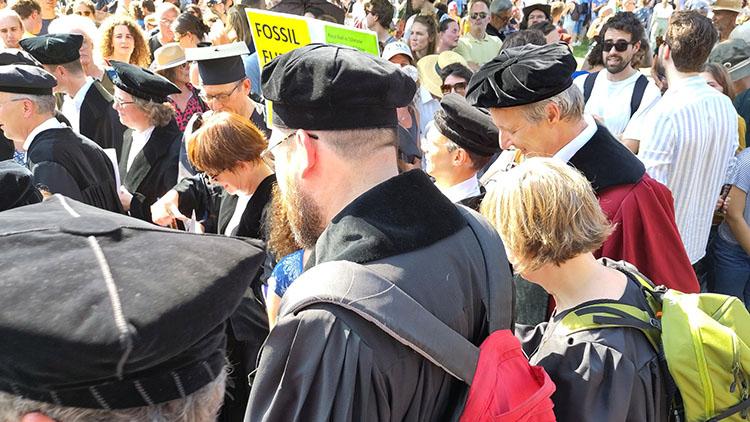The authentic scientist
Scientists vs populists

As a professor of Public Engagement (and Oceanography), my team and I research the role of scientists in science communication. Why does the media always call upon scientists when something needs to be explained? Why are scientists asked to communicate about their science, when they are often not trained or particularly talented to do so?
The key term is "authenticity". The media and the public like to hear the insights of the scientists themselves because they are authentic. The real deal. People trust the scientists doing the research. For instance, Aike Vonk, a PhD candidate in my group, recently showed that scientists (or at least, oceanographers) are indeed deliberately positioned in certain roles by their institutes' communication people. Sometimes scientists are portrayed as the hero solving problems, or conversely, as ‘warners’ of societal problems. As scientists, we are seen as authentic, and thus we are credible.
This weekend I listened to the Dutch podcast Overvloed, by my colleague Sjoerd Groeskamp and comedian Patrick Nederkoorn. The guest was Jitske Kramer, who discussed her book Tricky Tijden. She talked about how truthfulness or veracity is the best remedy against populists ("tricksters", as she called them). And I think that veracity is very close to the credibility that scientists have. So we as scientists can do something against populists.
But that veracity, that authenticity, comes with a responsibility. The responsibility not to violate the trust we are given. In her book Why Trust Science, science historian Naomi Oreskes makes the point that the public should never trust any scientist. Only when there is sufficient consensus can science be trusted.
So yes, I think scientists can (and should) get involved in the public debate. But only on topics where there is a scientific consensus. On the causes and consequences of the climate crisis. About the dangers of smoking. About the effectiveness of vaccinations. But perhaps not about the future with AI, or about climate engineering.
As far as I can see, there is simply no scientific consensus on the latter two topics yet. When scientists do become activist about AI or climate interventions, it very quickly leads to a high-stakes debate. And debating is not a bad thing, but these debates should then take place within science, for instance at conferences, and not through the media.
I may be known as an activist scientist; after all, I stood with a protest sign at my own inaugural lecture. It may therefore be surprising that I call for more restraint with public activism when it comes to topics without consensus. But nothing damages the public trust in science more than scientists rolling through the streets.
So, what should colleagues do who work in fields where there is no consensus yet? Communicate about your scientific process, for example. About why you do research in the first place. About your passion and emotion. And then please be as authentic and veracious as possible.